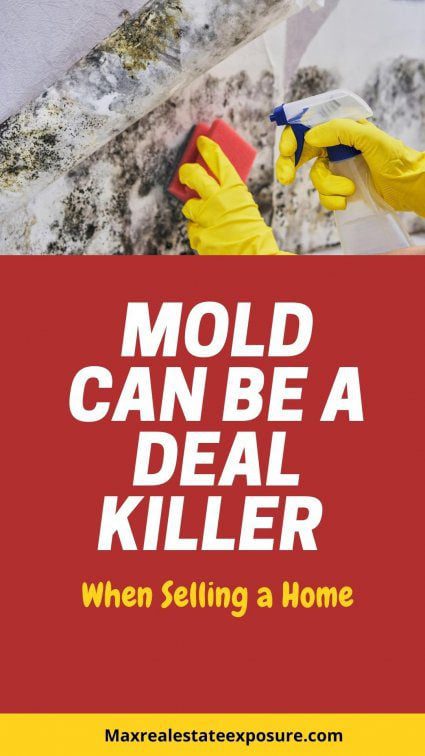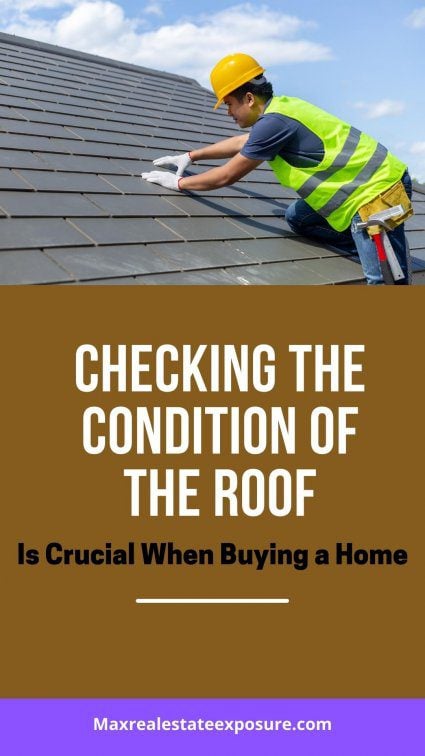Are Fixes Mandatory For A Seller After an Inspection?
 Many potential buyers ask if a seller must make fixes after a house inspection. The answer is no. There are no mandatory repairs for a home seller after the home inspection.
Many potential buyers ask if a seller must make fixes after a house inspection. The answer is no. There are no mandatory repairs for a home seller after the home inspection.
There are no legal requirements for a seller to change their property when selling. It does, however, make sense for a homeowner to take legitimate repair requests from a buyer seriously.
If a professional home inspector discovers major issues, it will be in a seller’s best interest to deal with them appropriately. Things like significant repairs and safety issues should be taken seriously.
These potential problems and necessary repairs will be detailed in a home inspection report provided to the buyer.
The buyer will likely have a home inspection contingency in a standard purchase agreement that allows them to terminate the sale.
If there are major problems, the next buyer will have the same concerns and want the issues addressed.
Are Fixes Mandatory For a Buyer After a Home Inspection?
Yes, it is possible they could be if the buyer is getting financing. The buyer’s lender could make the repairs a condition of getting their mortgage commitment.
Mortgage lenders can be made aware of blatantly apparent problems when the house appraisal is conducted.
Suppose there are blatantly obvious major repairs such as missing shingles, structural defects, a building code violation, electrical issues, an air conditioner or HVAC system not functioning. In that case, it will be reported to the lender.
These are just a few of the potential mandatory repairs that will need to be made for the real estate deal to continue.
Mortgage lenders will not finance a property when there are significant damage or safety concerns. Of course, buyers need to be reasonable as well. If it is not a new home purchase, there are bound to be some cosmetic issues. No home is perfect.
Let’s look at some of the issues that could be considered a reasonable repair request. After the inspection, knowing how to negotiate will be vital to keeping the sale on track.
The current real estate market conditions are likely to have some bearing on what you’ll need to do.
Home Inspection Problems You Don’t Want As a Seller
 Is a home inspection about to be performed on your property? Did you know many home inspection issues could stop your home sale very quickly?
Is a home inspection about to be performed on your property? Did you know many home inspection issues could stop your home sale very quickly?
Understanding what to expect from the home inspection is critical.
Before you sell your home, one of the most brilliant things you can do is get it inspected. Performing this due diligence is the only way you can ensure that there is nothing significantly wrong with the property you are selling.
It also gives you a chance to fix any home inspection issues before putting the home up on the market.
Prepare For The Inspection
Knowing how to prepare for a home inspection is critical in making sure you avoid problems with your sale.
Without a doubt, the buyer of your home will do their own home inspection, so it only makes sense to correct any known issues before a for-sale sign hits your lawn!
At first, it may seem like the home inspector is going out of their way to find problems, but you should appreciate the information they are giving you.
Often homeowners have no idea their home has any issues.
By taking care of these things now and documenting the repairs, you make your home acceptable to buyers and lenders and protect yourself from potential legal problems later on.
Home Inspection Issues That Could Be Mandatory For a Buyer to Be Fixed
As a real estate agent with thirty-five years of experience, I have been through thousands of real estate home inspections.
Having this first-hand experience has allowed me to counsel my clients with sound advice to help them navigate the home sale process.
The items below are the home inspection problems that can stop a sale in its tracks. A large portion of buyers will not accept a home’s purchase if one of these issues is discovered.
Even if the buyer accepts one of these problems, the likelihood is very strong that the buyer will be looking for a significant financial discount.
This is why taking action on these common home inspection findings can be financially prudent.
Structural Issues
When asked what fixes are mandatory after a home inspection for a buyer, there is no doubt the structural problems will be at the top of the list.
The structural integrity of a home will be super important to any buyer. There aren’t many things that will scare a buyer offer quicker than structural damage.
The foundation of your home is perhaps the most critical piece of what makes it structurally sound. To retain its structural integrity, it has to be in good shape for the rest of the house – the frame, walls, roof.
Unfortunately, water damage, geological issues, and even shoddy craftsmanship can lead to foundation problems. It takes a professional inspection to gauge the severity of the situation truly. If it is terrible, you will need to fix it before putting the house up for sale. If the problem is severe enough, consulting a structural engineer may be a good idea.
While a home inspector will be able to identify a structural issue, they may not fully determine what exactly needs to be done to correct the problem. There are varying degrees of structural deficiencies.
If you have the financial ability to fix a structural problem before putting your home on the market, you should do so. A major structural problem can easily cause some buyers to walk from the sale without question.
If you have a crawl space, it will be advisable to check its current condition before listing it for sale. There are common issues associated with crawl spaces.
Termites and Other Pests
 A pest inspection is one of the more common contingencies in a real estate contract. Most buyers are going to check for bugs when buying a home.
A pest inspection is one of the more common contingencies in a real estate contract. Most buyers are going to check for bugs when buying a home.
In fact, there are some types of loans where it is a mandatory inspection. One of these mortgages is a Veterans loan. The VA loan requires a termite inspection on all home purchases.
It can be pretty upsetting to learn that termites have been munching on your beloved home. However, it is not a problem you can afford to ignore. They will continue to do what they do, and the situation will only worsen.
The same can be said for any pests – from ants to mice. Bring in a professional to end the problem and repair the damage before the sale. While ants and mice are not a huge concern and can be rectified relatively easily, termites are not something to fool around with because of their ability to destroy structural integrity.
Different types of termites can invade your home. Here is one of the best references addressing termites. Without a doubt, you will learn things about termites you never know by looking at this resource.
Drainage/Water Issues
Nothing will strike fear into a home buyer faster than prior evidence of water in a home. In my experience, this is one of the leading causes of a buyer backing out of a real estate transaction. Water penetration is a reasonably common inspection problem. There, of course, varying degrees of water issues.
For example, if your basement takes on the water every time there is a mild storm, most buyers will not be so forgiving. Water is a substantial issue that needs to be fixed when selling your home. One of the most important things you can do is identify how the problem occurs.
Is the problem due to groundwater? Does the water come through an unsealed crack on the wall? These are the types of questions that need to be answered. When you know precisely how the water problem occurs, you can deal with it appropriately.
Maybe all it requires is a sump pump, which is reasonably easy to install. If the issue is something more severe, you may need a French drain system, which can be relatively expensive to install. If you are lucky and the water is just coming through a crack, that should be easily fixed. Sometimes it is as simple as having good drainage with a sound gutter system.
Proper drainage is essential for the integrity of your home. Water leads to erosion and mold inside the house, neither of which a buyer wants. Fortunately, these issues are fixable. Hopefully, the inspector caught it before things got too bad. Otherwise, you could be looking at substantial damage.
Mold Problems
 With moisture often comes mold, a real problem for homeowners. Mold is one of the things that are at the forefront of real estate sales at the moment. Many home buyers have become educated as to the health issues that mold can cause.
With moisture often comes mold, a real problem for homeowners. Mold is one of the things that are at the forefront of real estate sales at the moment. Many home buyers have become educated as to the health issues that mold can cause.
Anyone who has an upper respiratory problem will be susceptible to mold.
Many cities have regulations concerning mold because there are health concerns over its presence in the home. Too much mold can cause reactions in some people that can prove very problematic.
The last thing you want is a buyer finding out you have mold, and worse, that it hasn’t been addressed. Removing mold when selling a home is a sage move.
If possible, you want to make sure your mold problem is dealt with before you put your home up for sale. Luckily, mold remediation companies do an excellent job of cleaning up and stopping the problem’s source – typically water penetration into the house.
Radon Issues
Radon is a radioactive gas that comes up from decaying uranium in the soil – a gas that can and does cause lung cancer. The U.S. Surgeon General says that it is the second-highest cause of lung cancer in the country – and it is found in many, many homes.
This is why you must test for it for both your safety and the safety of your buyers. If there are radon issues, they can be addressed by radon mitigation specialists.
While there is no federal regulation in place that says you have to fix a radon issue, a buyer will expect that you will. Testing for radon has become very common in real estate transactions. Some essential things that you need to know about radon testing include these facts:
- The test will be conducted over a minimum of 48 hours.
- The EPA recommends that a home is under 4.0 picocuries per liter of air.
- If your home has radon, the standard solution is installing a PVC pipe into your home slab and venting out through the roof.
- A fan is attached to the pipe, creating a vacuum that removes most of the radon before entering the home.
- Depending on your area, a good ballpark for radon remediation is $1000-$1500.
Wiring/Electrical Issues
 Older homes were not permanently wired to handle modern technology’s load on an electrical system. If this is the case with your home, it could present a fire hazard.
Older homes were not permanently wired to handle modern technology’s load on an electrical system. If this is the case with your home, it could present a fire hazard.
If nothing else, it will lead to failures in the system that are inconvenient. When this comes up in your inspection, have an electrician come in and troubleshoot for you. It may be possible to find a cheaper fix than rewiring the entire home.
Your home does not need to be old to have electrical problems. If someone asked me the most common home inspection items, electrical issues would be right at the top of the list.
Rarely do you not see some electrical problem.
Common Wiring Problems
Some of the more common wiring issues include the following:
- Double tapped breakers in the electrical panel.
- Lack of ground fault interrupters.
- Reverse polarity of outlets.
- Wiring that is not grounded.
These electrical problems are usually relatively minor and, therefore, not that costly to fix.
One problem, however, that is not cheap is what’s known as knob and tube wiring. Knob and tube wiring was installed in older homes built in the late 1800s to early 1900s. This type of wiring has been discovered to be quite faulty.
Some lenders will not provide financing with homes with knob and tube wiring because it is challenging to procure home insurance.
This type of wiring has been known to cause numerous fires resulting in devastating damages.
If you have any knob and tube wiring in your home, it will make sense to get it removed. You will eliminate a large portion of buyers from purchasing your property without doing so.
Plumbing Issues
Again, older homes were not always constructed with our modern lifestyles in mind. The plumbing in your house may have been poorly designed, designed to handle a lot less of a load than is expected today, or constructed with materials – like lead – that are no longer considered safe.
If the home inspector has a problem with it, chances are you will need to fix it before you sell the home. Plumbing issues are another common home inspection problem that buyers don’t want to deal with.
Some of the more common home inspection issues with plumbing include:
- Leaky faucets.
- Loose toilets.
- Leaking valves and fittings around the heating system and hot water tank.
Well Water Problems
 Having well water is not necessarily a problem, as long as the water pressure is good and the water quality is acceptable. If either of these is an issue, you may be looking at an expensive repair – maybe even drilling a new well.
Having well water is not necessarily a problem, as long as the water pressure is good and the water quality is acceptable. If either of these is an issue, you may be looking at an expensive repair – maybe even drilling a new well.
Even if the well you are currently using was once perfect, that does not mean it will always remain that way. The people buying your home will want to have decent water pressure and undoubtedly need good quality water.
When a buyer purchases a home with well water, there will often be a “well water contingency.” Buyers will check both the quality and quantity of the well. When checking on water quality, the EPA guidelines are almost always followed to determine potability.
Home Buyers Will Check Water Quality and Quantity
Buyers will expect that your home meets the minimum guidelines for safe drinking water. Sometimes there might be elements found in the water that don’t meet the EPA guidelines but are not a major health concern.
For example, many homes throughout the US have high iron counts. Another common issue is hardness. While these are not significant issues, it doesn’t mean that a buyer may not ask you to rectify them by installing a filter or softener system.
If you have something that could cause health concerns like lead, mercury, or arsenic, expect a buyer to ask for remediation.
When checking on the quantity of a well, an inspector will typically look that the well will produce a minimum amount of water. The amount you commonly see as a minimum standard is five gallons per minute maintained over four hours.
If your well does not meet these standards, be prepared for a buyer to ask you to fix the issue. Correcting a well for lack of water can get expensive. Typical remedies include Hydro-fraction or drilling of a new well.
Asbestos Issues Can Be Troublesome
Asbestos was considered an ideal building material for a very long time. It was only once we understood that the dust from asbestos could stick in your lungs and stay there – causing a very nasty form of cancer – that people had to stop building with it.
If your home is older, though, you could still have asbestos inside of it. Some companies can safely remove it if necessary. Asbestos is only dangerous if disturbed – producing dust that you breathe in. It would be best if you did not attempt to remove the material yourself.
Asbestos was commonly used as an insulator of plumbing pipes in homes. It was also found in some types of flooring tiles as well.
Asbestos only becomes a problem when it is in poor condition. If the asbestos is adequately wrapped or not damaged in any way, it should not be a big concern.
Lead Paint Can Be an Issue
The use of lead paint was outlawed in homes in the late 1970s. All homes built before 1978 have to have a required lead paint form signed by both buyers and sellers in a real estate transaction. It is required that if a buyer has a child of the age of six years or less living in a home with lead paint, it must be removed or encapsulated.
Lead paint is no longer used in homes because of the health issues that it can create. Ingesting lead paint can make devastating health issues and even death.
Lead paint is one of those potential home inspection issues where full disclosure is necessary. Sellers must sign a form stating what they know or don’t know about the presence of lead in their home. Buyers are allowed to check for the same when buying a home.
A Bad Roof Can Stop Home Sales
 This can be one of the more frustrating home inspection red flags. Replacing a roof is not cheap and is not something anyone wants to do if not necessary. When the home inspector throws up a flag, though, you are probably in for a pricey repair.
This can be one of the more frustrating home inspection red flags. Replacing a roof is not cheap and is not something anyone wants to do if not necessary. When the home inspector throws up a flag, though, you are probably in for a pricey repair.
It is worth bringing in a professional roofing company to take a look at your roof in this situation. They may do some repair work and avoid replacing the entire roof.
Knowing if a roof needs replacement is an important consideration to find out before your home goes on the market. The roof is one of the most prominent bones of contentions in a home inspection because of the subjectivity of when it will need replacement.
A home inspector will often state that the roof is nearing the end of its life but has a few more years left before it needs to be replaced. In a buyer’s mind, this can mean NOW. In your mind, it is another few years.
Having evidence from a professional roofer is better than hearing you need a new roof from the buyer’s home inspector.
Smoke Detectors Might Need to Be Inspected
In some states, it is a requirement that a home has functioning smoke detectors. For example, in Massachusetts, you cannot close on a house without having the local fire department inspect the detectors.
There is a smoke detector certificate given that must be brought to closing. The certificate is suitable for 60 days from the time of the inspection. There are state laws in some places that are mandatory. It will be a good idea to consult with your real estate agent on any potential requirements.
Disclosure of Home Inspection Problems Will Be Necessary
As you can see, some home inspection issues can derail a real estate transaction. Negotiating home inspection problems becomes a necessary skill that you or your real estate agent will need to keep your sale together.
It would help if you never underestimated the level of concern a buyer has for these types of problems.
While they may be of minor concern to you, a buyer may not share your belief. Always remember that your sale is a business transaction. If one of these issues bothers one set of buyers, the chances of it bothering another are pretty good as well.
Remember moving forward, your Realtor will need to disclose these issues to any future buyers. Understanding these common inspection findings like the back of your hand should help keep your sale on track.
Lesser Home Inspection Findings
While the above items are significant issues found in homes, other smaller nuisance items are commonly found at home inspections. Some things should be addressed, but may not be a big enough issue that a buyer will walk from the sale.
Many of these items are found in fixer-upper homes. They are also common repairs found in many houses.
- Rotted exterior trim and cracked clapboards.
- Shrubbery too close to the home.
- The sidewalk and driveway are cracking.
- Garage floor cracking.
- Peeling paint.
- Improper deck support.
- Failing water heater.
- Chimney re-pointing.
- Broken skylight or window seals.
- Temporary hollow lolly columns.
Who Pays For Mandatory Home Inspection Fixes?
The cost of repairs discovered during a home inspection is negotiable between the buyer and seller. In a buyer’s market, the responsibility of home repairs is usually the seller’s responsibility. In a strong seller’s market, an owner is far less likely to have to address requested repairs, especially when they are minor.
When the market is more balanced, there could be a few different ways the inspection issues are addressed. There could be a repair credit given to the buyer via a seller’s concession, the seller could make the repairs, or the home’s purchase price could be reduced.
There also could be a combination of these through negotiations. A cash credit is usually the best way to handle inspection problems as the buyer can get the work done to their satisfaction, especially when it is a safety hazard.
Part of a real estate agent’s job is ensuring their clients have a fair and equitable agreement.
Final Thoughts on Mandatory Fixes and Repairs
A home inspection is one of the most significant hurdles to clear in a real estate transaction. It is crucial for both a seller and buyer to listen to sound advice from their real estate agent. A listing agent should be counseling the seller and likewise a buyer’s agent with the buyer.
There will be some types of repairs that should be taken seriously and other cosmetic repairs to be disregarded. It is not uncommon for a fine line to determine what should be addressed and what shouldn’t.
Additional Home Selling Articles Worth Reading
- What is the purpose of escrow funds – See why having an escrow account in a real estate transaction is so crucial.
- What to do before selling a home via Maximum Real Estate Exposure.
Keep in mind that the home inspection is the one of the biggest hurdles to clear in a real estate transaction. More sales fall apart at the home inspection than at any other point in the home selling process. It makes sense to be aware of what can cause your sale to end abruptly so you can avoid that happening!
Hopefully, you have gotten something out of this guide for avoiding common home inspection issues.
About the author: The above Real Estate information on what fixes are mandatory after a home inspection was provided by Bill Gassett, a Nationally recognized leader in his field. Bill can be reached via email at billgassett@remaxexec.com or by phone at 508-625-0191. Bill has helped people move in and out of many Metrowest towns for the last 34+ Years.
Are you thinking of selling your home? I have a passion for Real Estate and love to share my marketing expertise!
I service Real Estate Sales in the following Metrowest MA towns: Ashland, Bellingham, Douglas, Framingham, Franklin, Grafton, Holliston, Hopkinton, Hopedale, Medway, Mendon, Milford, Millbury, Millville, Northborough, Northbridge, Shrewsbury, Southborough, Sutton, Wayland, Westborough, Whitinsville, Worcester, Upton, and Uxbridge MA.


Wow!! This is one of the best articles that I have read in quite some time. As a Certified Professional Inspector, of course one would think that I am in favor of promoting my profession, but in all honesty, I am in total agreement with everything that Bill has stated.
Agents would be wise to pay heed to his warnings. It makes perfect sense to me to be prepared for what a buyer’s inspection could discover resulting in those costly 11th hour negotiations. Having your home inspected pre-list can give you the opportunity to potentially save thousands- both on the sale price of the home as well as the repairs of any major items that are found.
Think about it this way, by finding out ahead of time that your home has, for example, a Radon problem. You can take the time to research proper mediation methods, collect several estimates, and screen the contractors without having to rush to meet a closing deadline. You will save money by not having to pay for unnecessary repairs or upgrades “just to be sure” as you will have had all of the research to know exactly what you need. Plus, you will have leverage over the contractors to accept a competitive bid rather than be at the mercy of whomever you can find who can do the work under a time pressure. Again, as an inspector, I would think that my fee would be peanuts to what you could have to spend in the 11th hour and then my pre-list report would be worth its weight in gold. Great job Bill.
John thanks very much for the compliments on the article. As you know from being an inspector these are the kind of issues that can cause a buyer to terminate a sale. Your advice is spot on about getting a pre-inspection when you are not that knowledgeable about homes.
This is a helpful article Bill! People should know the importance of home/property inspection. Some just don’t care about it until becomes a serious issue. Property inspection means protection. It’s a small investment to give you a peace of mind and security.
By the way, I followed you on twitter! Have a nice day.
Great article Bill! I wish pre-listing inspections would be used more often in my area. I have seen many situations where a pre-listing inspection would have kept the sale on track had the items been corrected before the home was put on the market. Home Inspectors don’t kill deals, the condition of the homes, lack of proper negotiations and unrealistic buyer expectations are what I see most often prevent a sale from moving forward. In the end we all need to look out for our customers best interest. Customers know when their agent has their best interest at heart and they appreciate that very much. They let you know it by doing repeat business and referring friends and family to you. Have a nice day.
To your success,
Matt
Agreed Matt and thanks for the compliments. Considering a home inspection is one of the biggest hurdles to clear in a home sale it makes sense to have an understanding of the real condition of your home.
Great post Bill. I was wondering how you feel about full inspections for brand new houses. Do you think I could make more variety by offering new home inspections as opposed to entire home inspections? Thanks for the post.
Roger – I don’t think it is a bad thing to have an inspection on a new place. We don’t allow it to be a contingency though. It has to be for informational purposes only. You can’t expect a builder to build a custom home only to have an inspection as an escape clause.
Bill,
Good article. One critique I will give is near the end of the article “Lesser Home Inspection Findings” #6 Improper deck support, should not be listed in this category.
Decks with improper support(s) can be dangerous. The combination of ledger board connections and the lack of proper ledger board flashing is the most concerning issue found on many decks. The ledger board connection is often the detail responsible for when a deck collapse occurs.
I operate a multi-inspector company in the Greater Cincinnati OH / Northern KY area, I would like your permission to quote some areas of this article (giving you credit obviously).
Thanks in advance.
Michael – you are correct. I should have been more clear about what I meant by improper deck support. I was referring to the supporting beams that may not be sized according to today’s code.